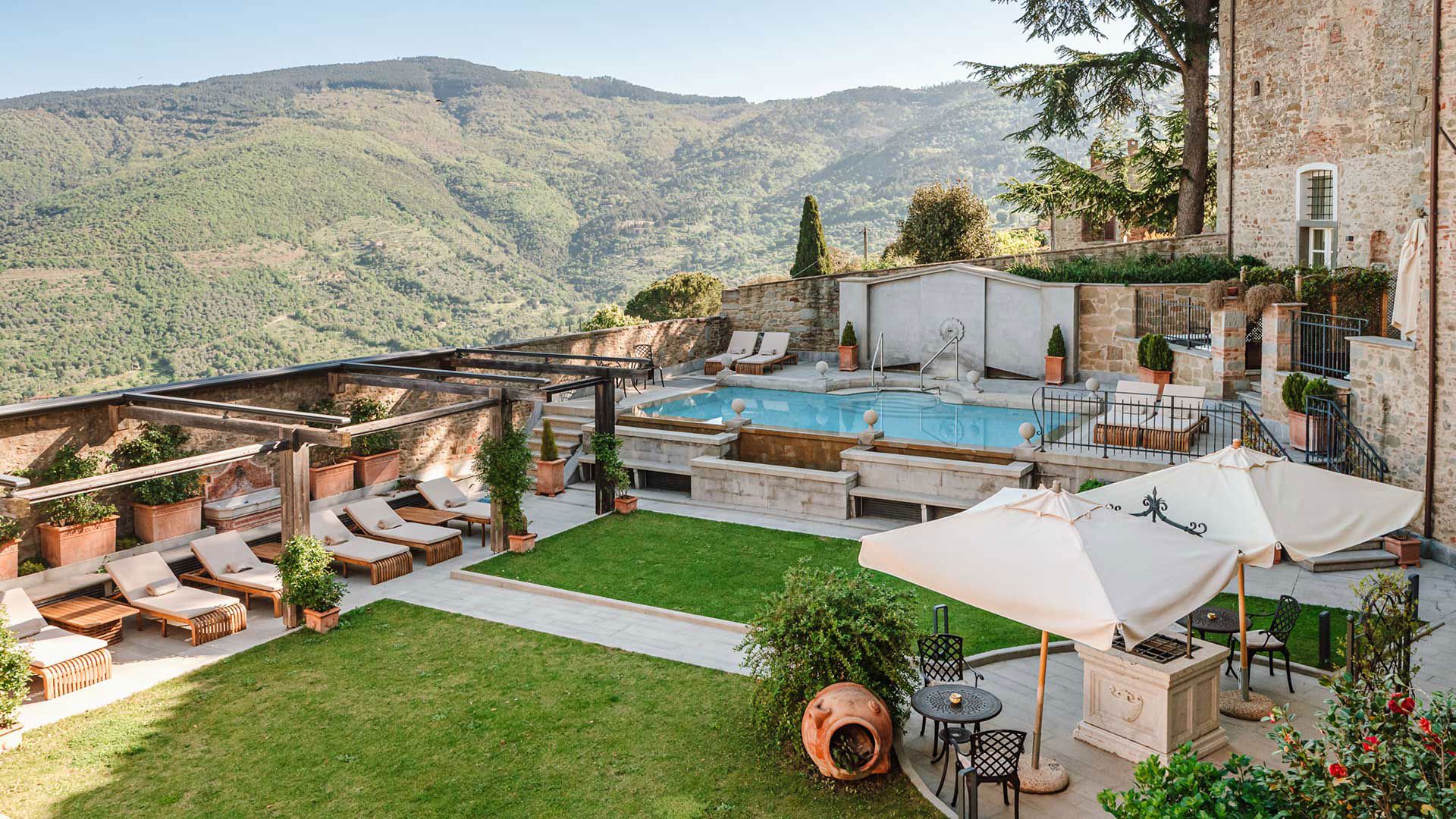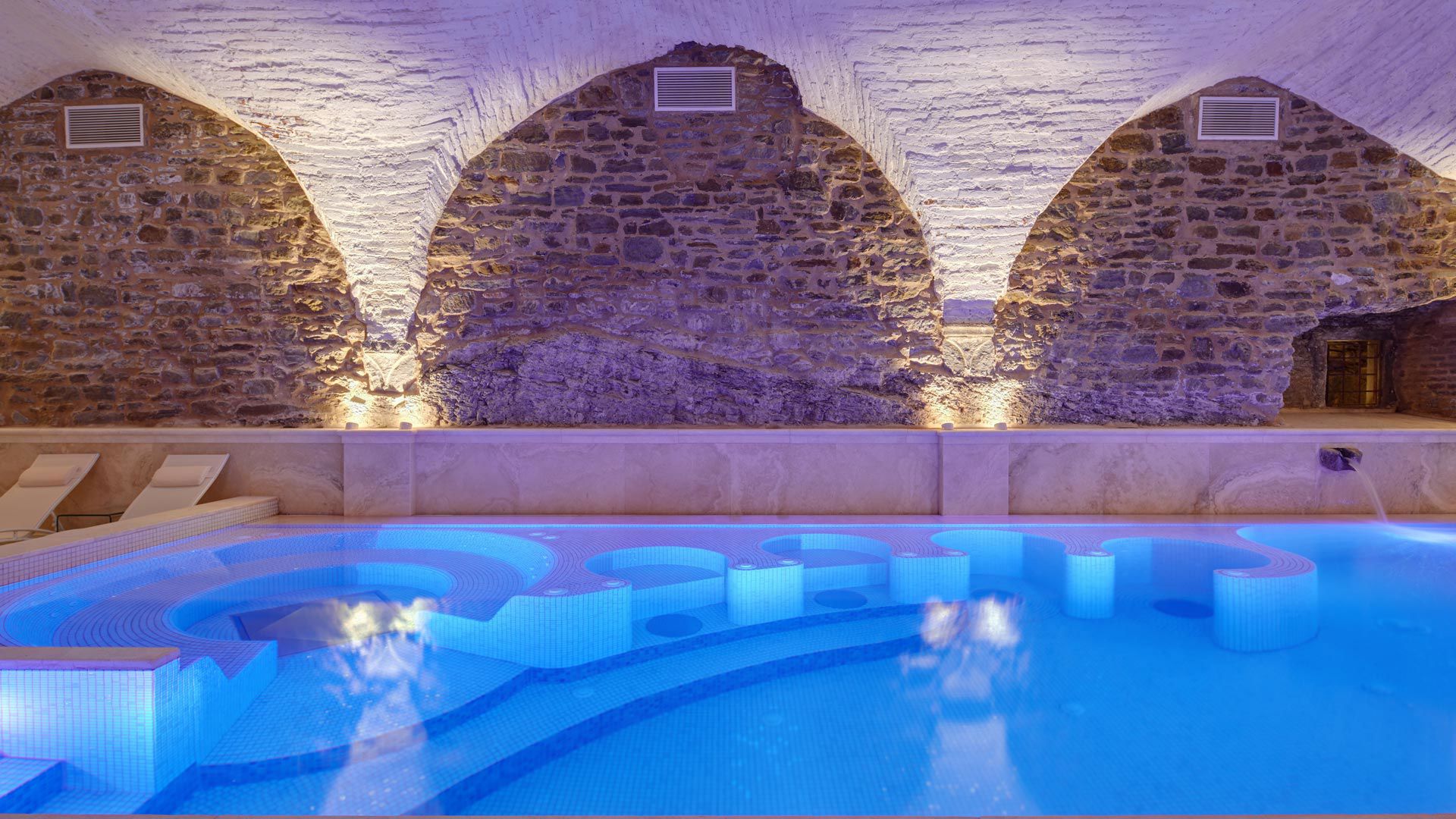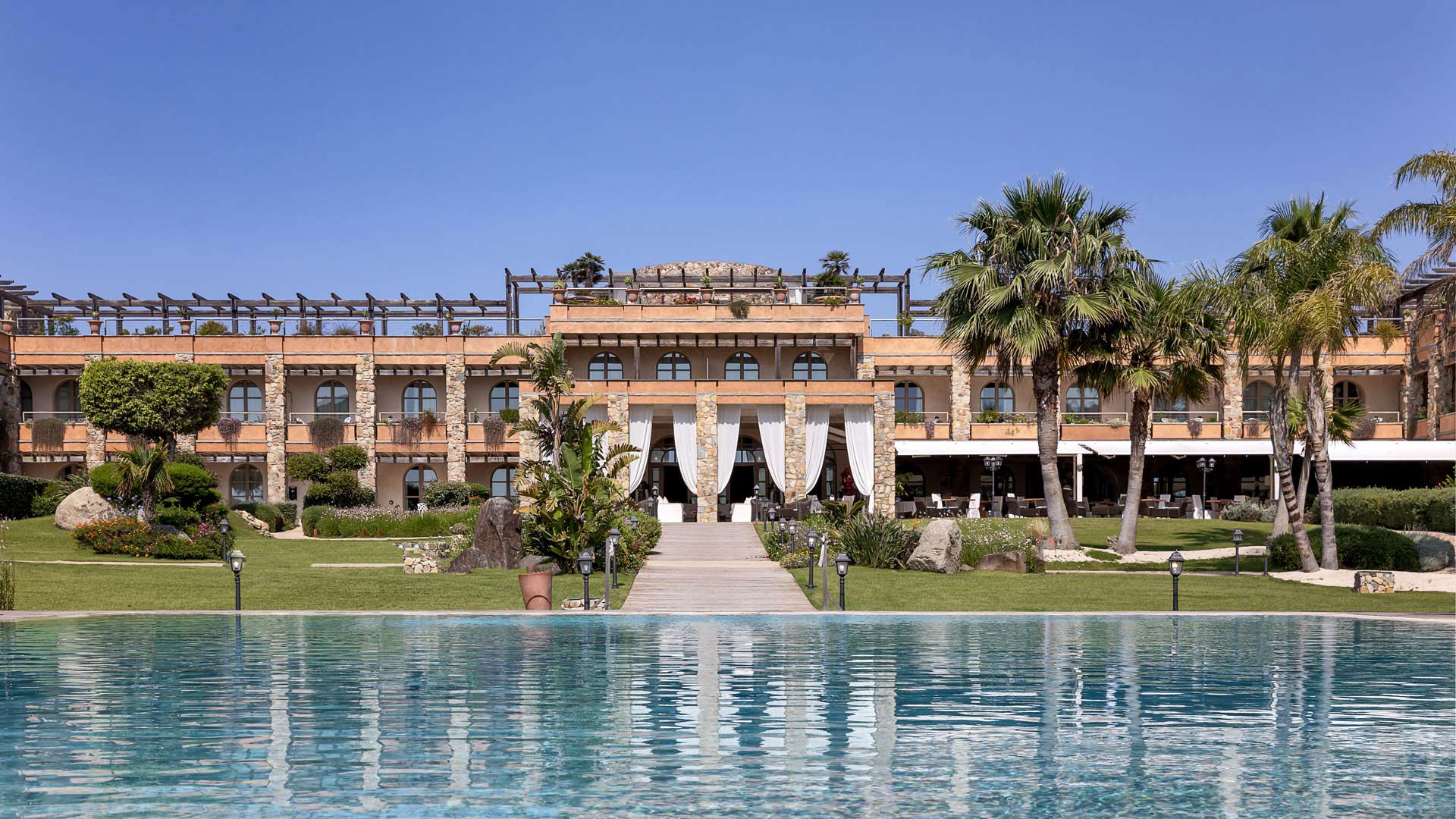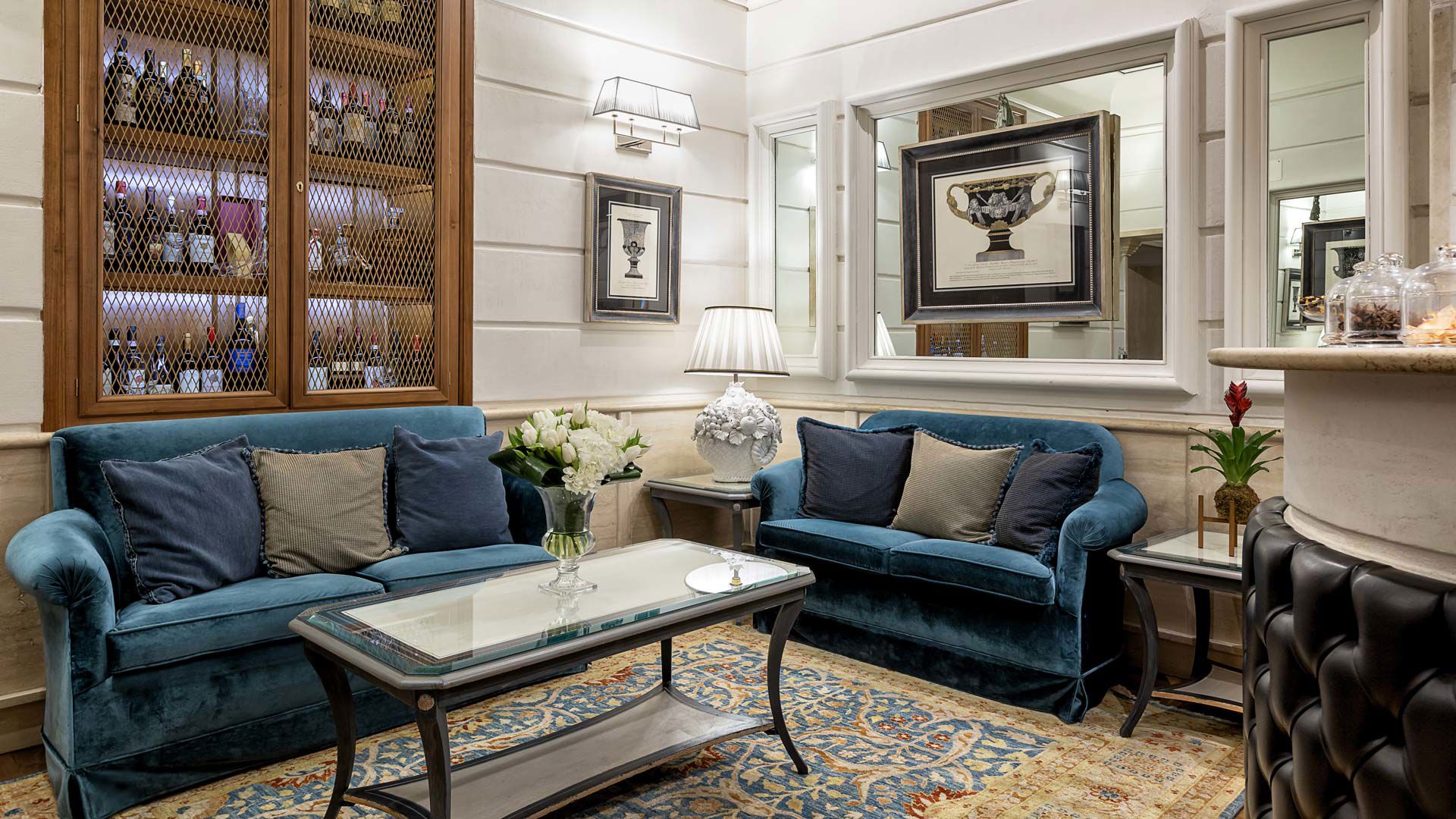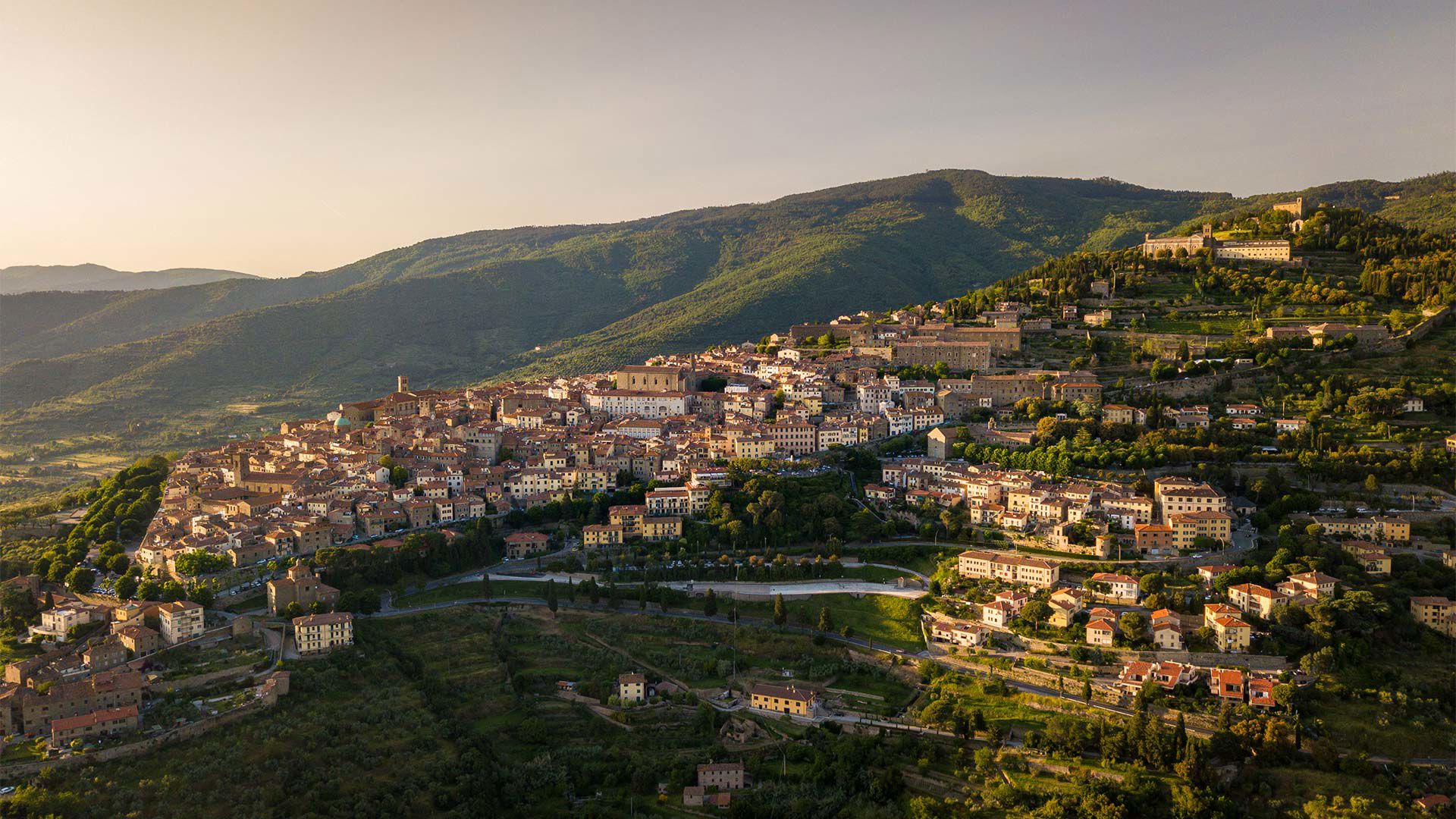A town with legendary Etruscan origins
Cortona
Perched on a hill overlooking the Val di Chiana, Cortona is a jewel of Etruscan origin that is enchanting with its atmosphere steeped in history and its timeless beauty. The narrow medieval streets, paved with stone, wind through Renaissance palaces and ancient churches, revealing picturesque views and breathtaking panoramas at every turn.
Cortona is a city of art where the past is palpable in every stone. The MAEC (Museum of the Etruscan Academy and the City of Cortona) houses invaluable Etruscan and Roman artifacts, including the exceptionally rare 16-nozzle Etruscan chandelier, while the city's churches are adorned with works by Luca Signorelli, a Cortona native. Cortona is indeed the birthplace of renowned painters, such as Pietro da Cortona. In the Diocesan Museum, one can admire the Annunciation by Beato Angelico.
A short distance away stands the Renaissance temple of Santa Maria al Calcinaio, built in the late 15th century from a design by Francesco di Giorgio Martini. The Girifalco Fortress, with its imposing structure, offers a 360-degree view of the surrounding valley, a true spectacle for the eyes.
Initially Etruscan, as evidenced by numerous tombs found in the adjacent countryside, including the Tanella di Pitagora and the Melone di Camucia, it later fell under Roman rule and reached its splendor under the Signore dei Casali in the 14th century, eventually following the fortunes of the Grand Duchy of Tuscany. It is surrounded by formidable walls, enclosing important Romanesque-Gothic churches such as Sant’Agostino and San Francesco, designed by the saint’s disciple, Friar Elia, and palaces of medieval and Renaissance architecture.
Cortona is also a vibrant city, with its traditional restaurants offering the authentic flavors of Tuscan cuisine, artisan workshops preserving ancient crafts, and numerous cultural events enlivening its piazzas. A place where time seems to stand still, where beauty and tranquility reign supreme, an invitation to slow down and savor every moment.
The Monastery awaits you at the hilltop, embraced by the city’s ancient Etruscan walls.
Via del Salvatore, the road that leads to us, is a dive into history, with its characteristic narrow streets that tell centuries of Cortona’s life.
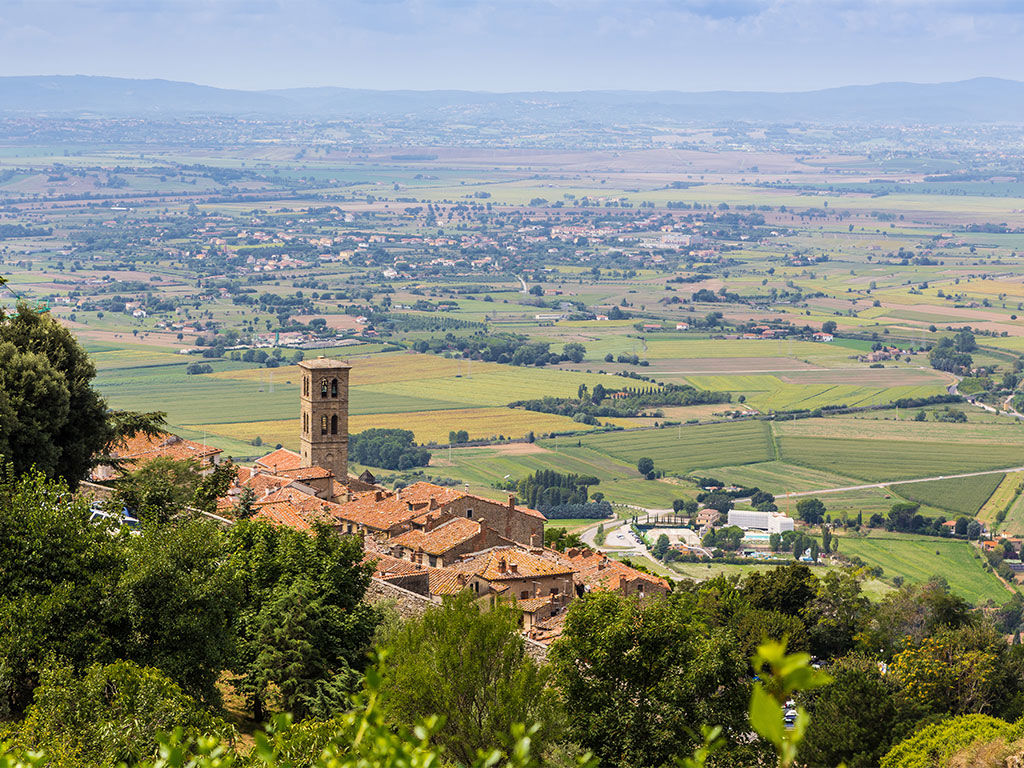
Cortona was founded by Dardanus, son of Jupiter and Electra, who also founded Troy. According to Virgil (Aeneid III, 167; VII, 209), he was born in Cortona and from there journeyed to Asia. A proverb, rooted in this legend, says: “Cortona, mother of Troy and grandmother of Rome.” It is said that Dardanus, fighting on a hill overlooking the Val di Chiana, was struck by a spear that took his helmet, which could not be found.
An oracle revealed that Mother Earth had hidden the helmet in her bosom, desiring a turreted city to rise where it was lost, as impenetrable and strong as Dardanus’s helmet. Thus, the hero built the walls of the new city, centered where he lost his helmet. The current walls are Etruscan, dating back to the 4th-3rd century BC. They are characterized by cyclopean masonry, with massive stones that raise questions about how such imposing rocks were moved in ancient times. The city was named "Corito," meaning helmet, from which Cortona derives. The great fame of this enchanting town is further amplified by Frances Mayes’s bestseller, "Under the Tuscan Sun," whose villa, Bramasole, is in Cortona where she spends a portion of every year. Subsequently, the film adaptation of this heart-stirring novel transformed Cortona into a coveted international destination.

